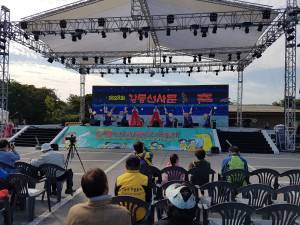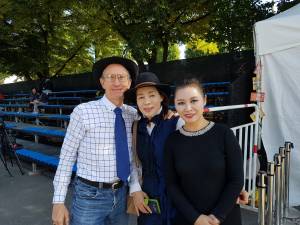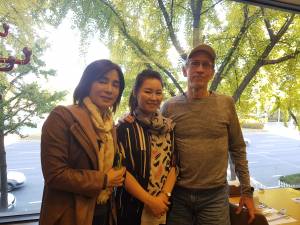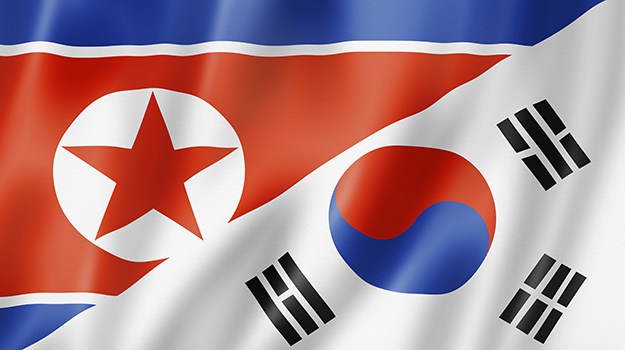I recently updated my will. Not that I fear my death is impending—I don’t. But as I told my executor, Brian Ullom, “You just never know.” It seems that the people with whom I attended high school (class of 1971) are dying with alarming frequency. What spurred me to make the revision, however, is the numerous e-mails I have gotten from friends in the USA. They ask me whether it is not dangerous to remain in Seoul, so close to the border with the world’s No. 1 rogue state, the Democratic People’s Republic of Korea. Come home, they urge me. In response, I ask them to define their terms. What is meant by “home”? And what constitutes “danger”? This huge city is absurdly safe; violent crime is rare. You are far more likely to be assaulted, subjected to a strong-arm robbery or murdered in Dallas, Houston, San Antonio or Austin.
Nukes and missiles
I admit, I live in a precarious situation. The North Koreans now have a significant nuclear weapons program, and along with it the ability to send missiles flying up to 2,200 miles. The Japanese are nervous, you bet they are. The last couple of launchings went over Hokkaido before splashing into the North Pacific Ocean. Kim Jong-Un (Chairman of the Workers’ Party of Korea, Chairman of the Central Military Commission, Chairman of the State Affairs Commission, Supreme Commander of the Korean People’s Army, along with other fancy titles; he’s the big boss man, same as his father and grandfather were) says he can strike Guam and even the west coast of the USA although some experts find this doubtful. Nevertheless, our neighbors on the other side of the 38th parallel possess a dozen nuclear bombs and are expected to quintuple that by 2020. Furthermore, the North Koreans have developed a 250-kiloton hydrogen bomb that could, they say, be loaded onto an intercontinental ballistic missile. That, we may surmise, would do a lot of damage.
Even if they cannot—yet—nuke Los Angeles, San Francisco and/or Seattle, they could easily send one or more bombs over the border, obliterating me and many of the 25 million or so people in the Seoul metropolitan area. I would be a liar if I denied having given thought to this frightening prospect. Yes, I am aware of the North’s much greater firepower these days, and of Kim’s bluster and U.S. President Donald Trump’s angry ripostes. If he asked my advice, and he has not yet done so, I would say: “Don, my man, why ratchet up the rhetoric? Be strong, yes, but your provocations are simply not helpful.”
Meeting Ok-In
 That is the backdrop for the recent contact I have had with a North Korean woman named Kim Ok-In. My girlfriend Audrey and I attended the Amsa-dong Prehistory Cultural Festival on October 7, 2017 and among many features that sparkling day was a musical performance by a troupe of North Korean refugees. Ok-In was one of them. Their costumes, their movements on stage and the way they spoke seemed “different” to me, and Audrey, a native of South Korea, confirmed that. After their 20-minute song-dance-and-drum show, they moved to an ad hoc dressing room and got ready to leave. But this was too great an opportunity for me, so I pressed for an encounter. Audrey played a crucial role, of course. We met Ok-In, said nice words about the performance and exchanged cards. We tried not to overwhelm her or make her think we wanted anything from her. We offered and sought only friendship. Due to Audrey’s charming manner, the lady’s resistance faded quickly.
That is the backdrop for the recent contact I have had with a North Korean woman named Kim Ok-In. My girlfriend Audrey and I attended the Amsa-dong Prehistory Cultural Festival on October 7, 2017 and among many features that sparkling day was a musical performance by a troupe of North Korean refugees. Ok-In was one of them. Their costumes, their movements on stage and the way they spoke seemed “different” to me, and Audrey, a native of South Korea, confirmed that. After their 20-minute song-dance-and-drum show, they moved to an ad hoc dressing room and got ready to leave. But this was too great an opportunity for me, so I pressed for an encounter. Audrey played a crucial role, of course. We met Ok-In, said nice words about the performance and exchanged cards. We tried not to overwhelm her or make her think we wanted anything from her. We offered and sought only friendship. Due to Audrey’s charming manner, the lady’s resistance faded quickly.
“Maybe we can have lunch sometime,” we said to Ok-In, and she seemed open to that. Three weeks later, we met her at a restaurant in the Jamsil district of Seoul. It lasted 90 minutes, and we had a fine time. Naturally, my bilingual GF served as the fulcrum. I did not mind at all that the two of them sometimes carried on a lively conversation to which I was not privy. They got along well and clearly  enjoyed each other’s company. Now and then, Audrey would turn to me with a smile and deliver a quick summary. She also conveyed some messages I had for Ok-In, such as “We are glad you are here” and “We respect you.” She knew it was sincere. With more than 30 years as a journalist—Ok-In was informed of this—, I had a lot of questions. Most were not too invasive; I realized that tact was called for above all. Nor did I expect her to volunteer candid opinions about the Kim regime, what she knew of the North Korean gulag and what her memories were of the famine of the mid- and late 1990s that left almost 3 million people dead.
enjoyed each other’s company. Now and then, Audrey would turn to me with a smile and deliver a quick summary. She also conveyed some messages I had for Ok-In, such as “We are glad you are here” and “We respect you.” She knew it was sincere. With more than 30 years as a journalist—Ok-In was informed of this—, I had a lot of questions. Most were not too invasive; I realized that tact was called for above all. Nor did I expect her to volunteer candid opinions about the Kim regime, what she knew of the North Korean gulag and what her memories were of the famine of the mid- and late 1990s that left almost 3 million people dead.
Mass games performer
She said she was born and raised in Pyongyang, a fact that speaks volumes. Life is not too bad there, relatively speaking. Most people in the capital adhere to the company line—the Kims are great, the DPRK is the most wonderful place on earth, and so forth—and do not have a burning desire to escape as do those in the grim hinterland such as South Hamgyeong Province, Yanggang Province and Jaggang Province. Ok-In confirmed that she had participated in the famous “mass games” at May First Stadium in which as many as 100,000 people (before even more spectators) put on a highly politicized display of gymnastics, music, acrobatics and drama. I gently asked why she had left, and the answer was mainly economics. Ok-In and four other family members crossed the frozen Tumen River into China in the winter of 1998, toward the end of the famine. Four years later, they managed to reach Seoul. Her occupation consists of giving performances like the one we saw at Amsa-dong, and by designing and crafting traditional Korean clothes.
Ok-In claims to hold no regrets about having left, and yet she sometimes misses her native land. Her adjustment to life in South Korea, while smoother than for many other such refugees, has been challenging. She has experienced a measure of hostility, suspicion and discrimination, and yet some people—Audrey and me, for example—have gone out of their way to befriend and welcome her. During our meal, she made one reference to unification of North and South Korea, but the when and the how were left unspoken.


Add Comment